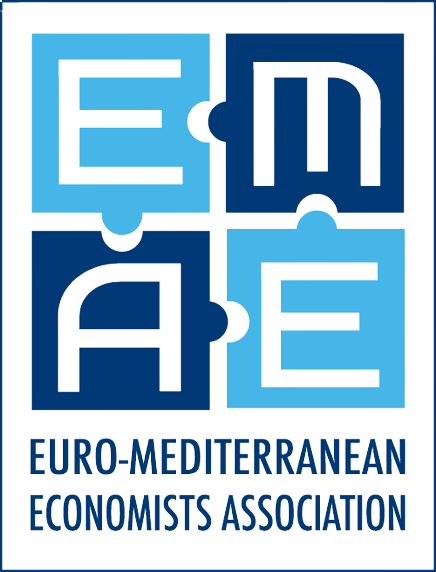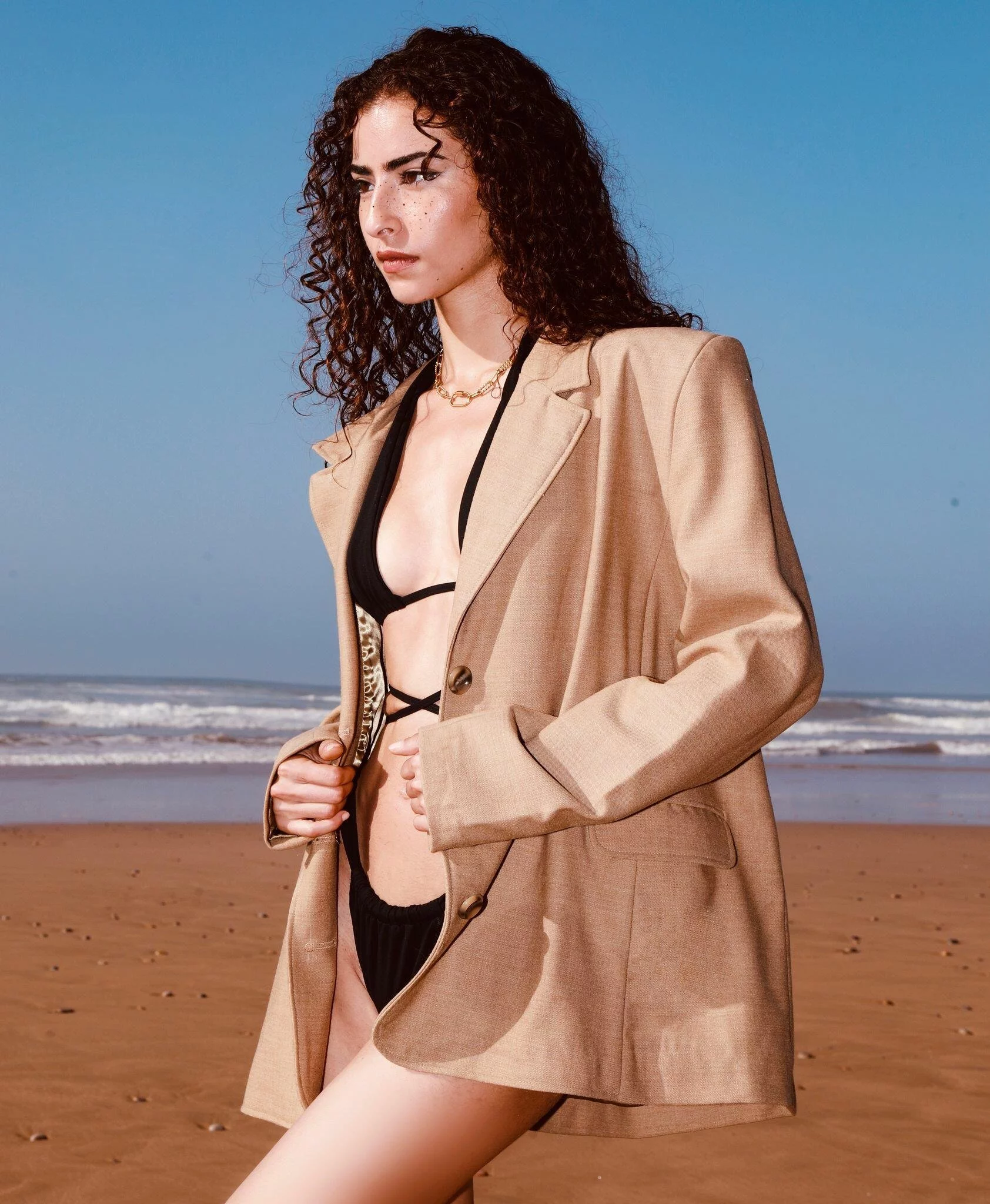
Designer of the month: the Moroccan Salwa G, founder of the brand Maison Beige.
5 min read — Feb 24, 2023
Once again Dear Mafters I’m gracing you with our DOTM article, this month we're taking a Moroccan-French trip.
This time, I’m broadening the scope towards the Mediterranean with a very ambitious Moroccan Designer “Salwa” who fell in love with Fashion very early on. And who is also phenomenally yielding sustainability as the core of her Fashion Brand Maison Beige.
A timeless and classic brand that ticks all the buzzword boxes: “eco-friendly”, “locally sourced”, and “sustainable” – while constantly accompanying women and the changes their bodies may undergo. Young urban professionals, party girls, and working mothers can all relate to this brand and find practical yet chic pieces to include in their wardrobes.
Having gathered all that standard information, it was time for me to start dig a little more deeper :
Tell us about your background. Who is Salwa? Your upbringing?
“Coming from a middle-class Moroccan family, the priority was financial security. Thus, I ended up in a business school and then in a career in market finance. However, I never gave up on my passion. By the age of 27 I ventured out and started taking Fashion Design evening classes. Leading to Maison Beige’s launch in 2021 all whilst keeping my work in finance.”
Talk to us about your brand (the story behind Maison Beige and its meaning).
“The name Maison Beige came from a sophisticated approach to fashion and the weight the word “Maison” has to entail in the industry. The choice of the color Beige, however, was due to its minimalistic and essential use in everything. So together they represented my vision and ambition for the brand. One that has an effortlessly cool, sophisticated air and manages to look very “now” without trying too hard to be trendy.”
Credits to : Anonym shot
Can you go through the journey of how you got to where you are now?
“Back when I launched back in 2021, I was very focused on creating a brand that was honest and dedicated to trying to do the best that I could in terms of sustainable and ethical practices. Over time, I have been able to introduce better practices into the business, such as committing to only using organic cotton. It was important to make sure that the people who made my clothes were being paid fairly and looked after. And as I have grown, I’ve been able to introduce new brand values. I think otherwise it would have been extremely overwhelming trying to tick all these boxes at the beginning.”
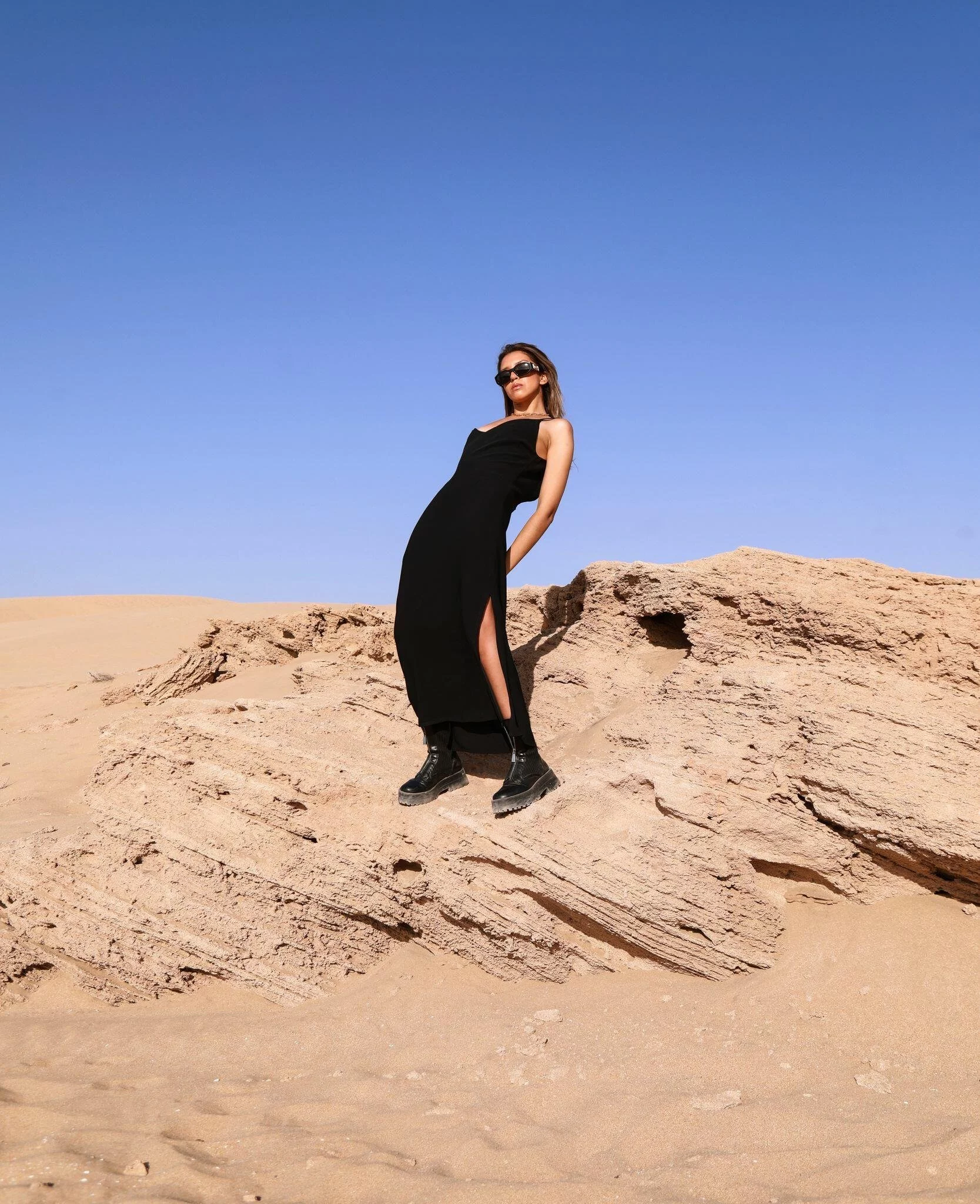
Credits to : Anonym shot
When we first talked, you mentioned that it was very important for you to ensure the Moroccan roots of the brand. Why is that?
“All the Moroccan traditions and stories I have experienced in my hometown have shaped who I am as a person, and they continuously keep on allowing me to find a plethora of inspiration. It was very important for me to shine a light on the offspring of all that via my work.”
Maison Beige is focused on keeping craftsmen and women in business and their traditions alive. That is why, for me, the hands that make the designs come true are just as important as the designer behind them. The fact that I’m able to create a sustainable product for the villages I work with is important to me. Enabling whole communities to grow their craft trade into blossoming business partnerships with brands like mine is extremely rewarding to witness and be a part of.”
Salwa’s mission to make clothing more conscious has been extremely important. Because not only is fashion currently one of the [most polluting industries in the world], but also because lack of supply-chain transparency has led to unethical manufacturing processes and disconnection between customers and where their garments come from.
This begs the question :
What have been some of the biggest challenges for you in upholding a sustainable brand?
“When you are starting a sustainable fashion brand with no background or knowledge in running a company, the lack of experience makes it much harder to find the right people to work with and that understand your vision. I have learned not to be too trusting with people I have just met, and to be more diligent with background checks regarding their skills and reputation. Alongside that, I struggled with the high cost of Materials and manufacturing, i.e., less harmful practices. Also, aspects of the design were challenging due to the limited choice of fabrics. This drove me to establish certain approaches, ensuring production with the least amount of waste within each garment. However, I am currently exploring circularity and designing for longevity. I have a long way to go but for me, it has always been about small steps.”
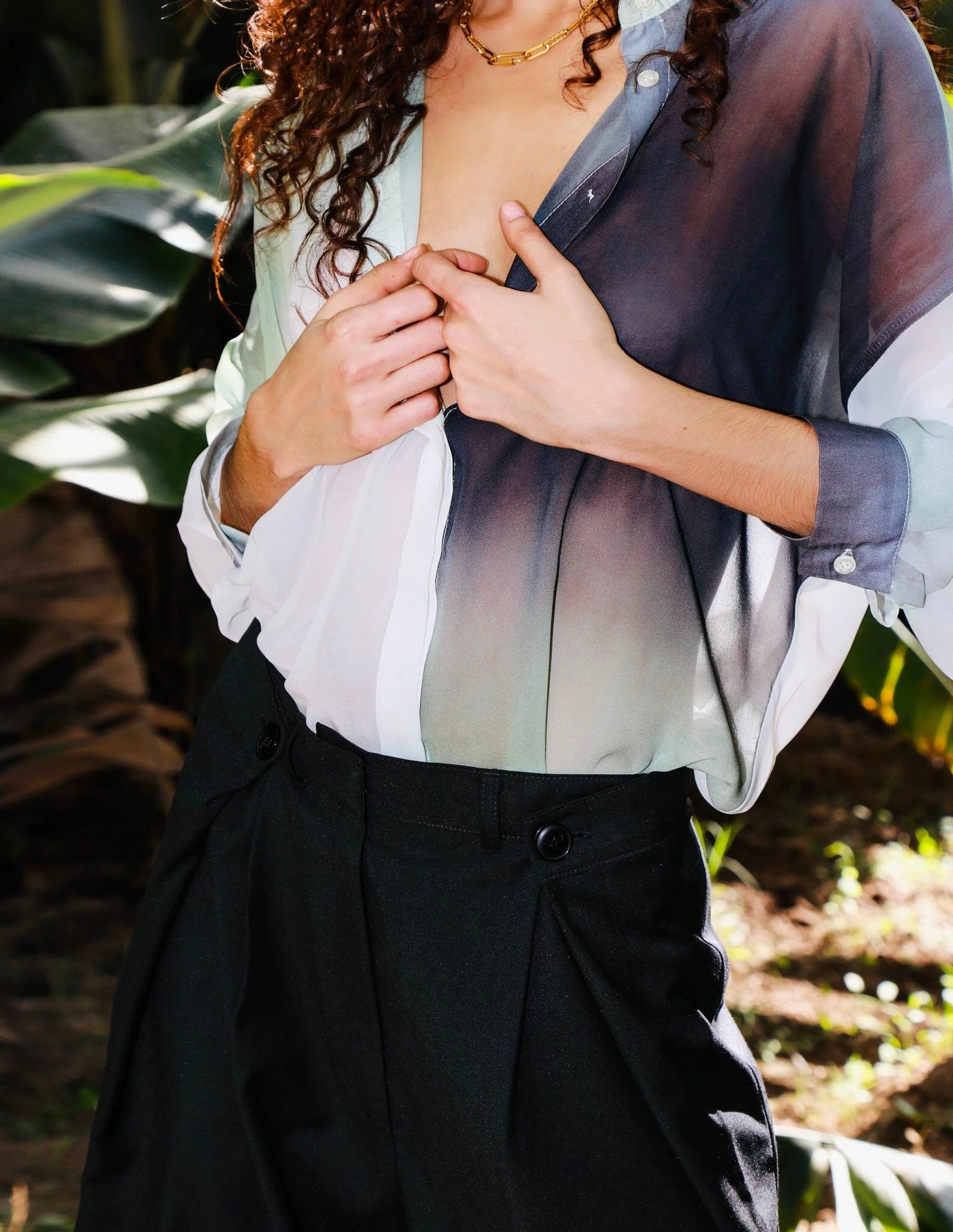
Credits to : Anonym shot
In your own eyes, how has becoming a sustainable designer changed your life?
“It has certainly strengthened my inventive or creative outlook on life. It’s given me a broader perspective and forces me to think of things in a more ethical way or from multiple angles.”
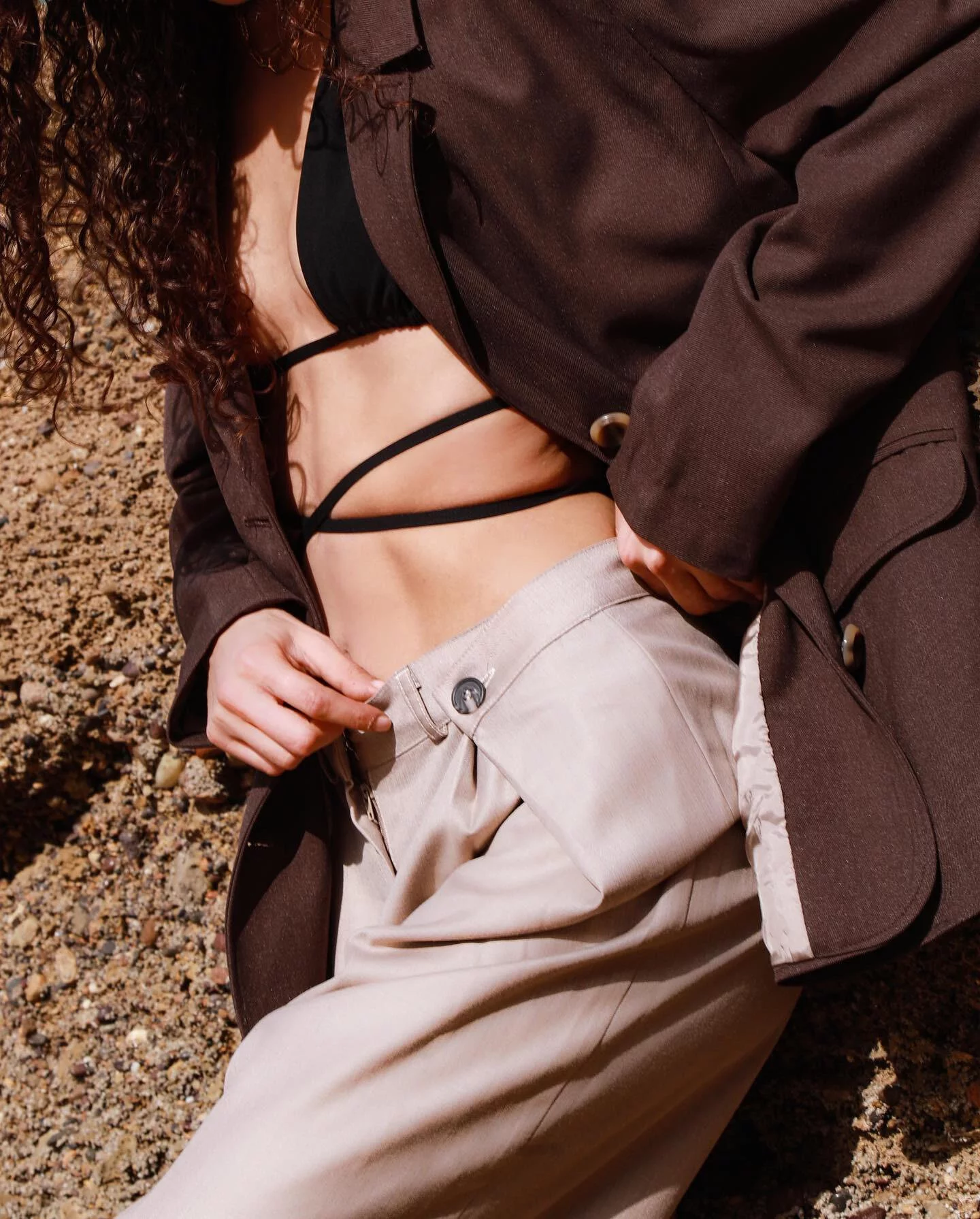
Credits to : Anonym shot
What do you want to achieve personally with your brand, in terms of sustainability?
“I would love to eventually work with a supply base that supports local communities, regeneration, and women. This requires a lot of time and resources, but I feel I have a responsibility to try my best and develop a supply chain that can become circular.”
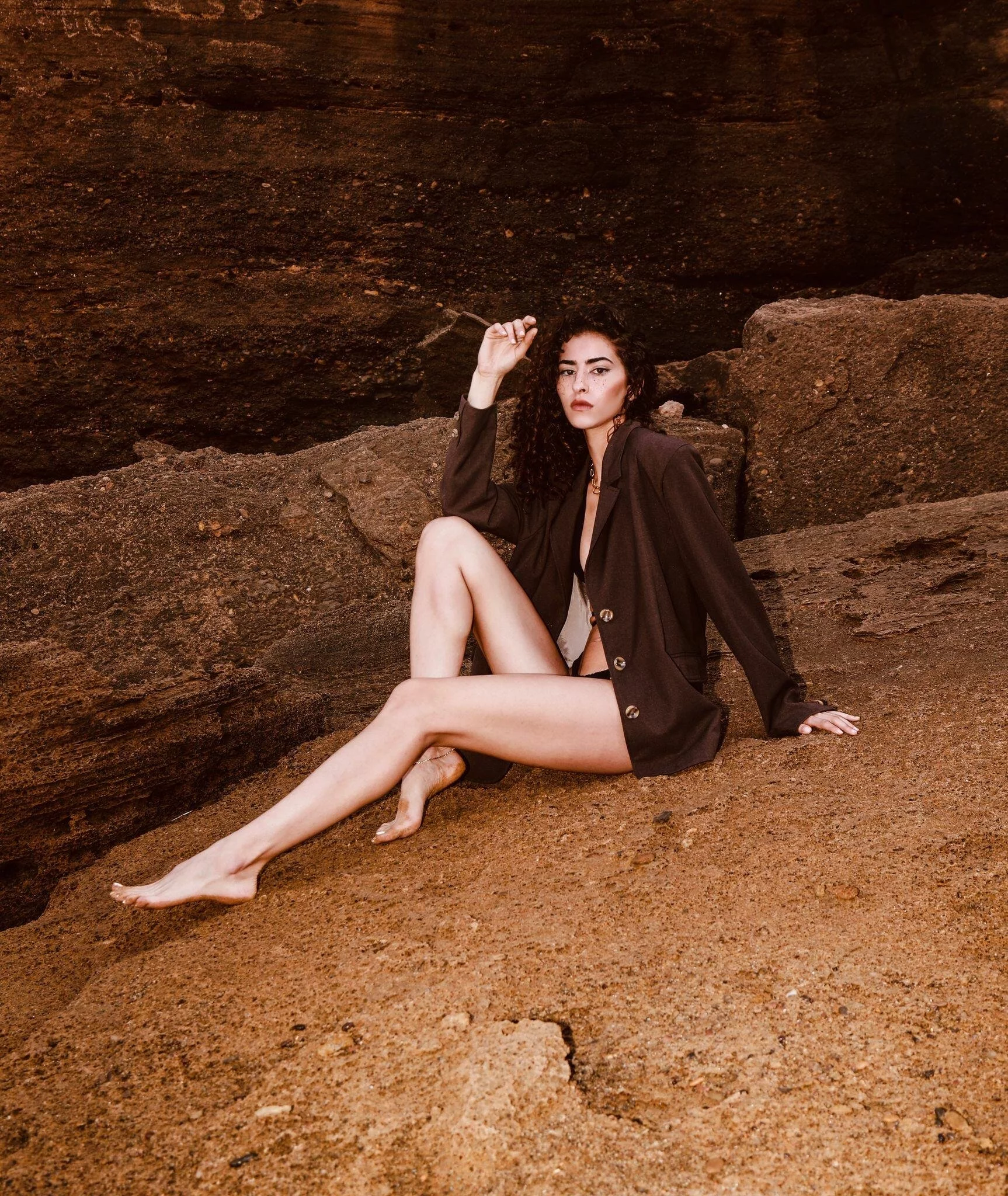
Credits to : Anonym shot
The demand for sustainable fashion is exponentially growing, due to an increased concern about the industry’s environmental impact. Luckily, today there are a growing number of brands working hard to be more eco-friendly, from using more responsibly-sourced materials to reducing greenhouse gas emissions across the supply chain like Maison Beige. This brand's local production, craftsmanship, and animal welfare are the main keys to its sustainability values. This holistic ethos, which runs through the brand, was born from the Mediterranean Designer’s issues with the industry she found herself working in.
It is also the same ethos that allowed her to consider the concept of “profitability”.
Because If we want to preserve the life and resources on our planet, we need fashion companies to be driven by a new set of values. Profit should be connected to the regeneration of nature, decarbonization, and a profound connection to our own cultures and heritages. We require an industry that works holistically to become beneficial to societies and the natural world. We can't go around it.

